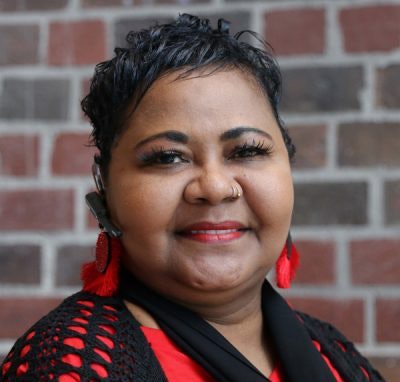Years ago, I was exposed to non-verbal communication as an undergraduate majoring in communications. I was hooked. The same was true with cultural anthropology, then and now. These interests have made me a ‘people watcher’. I am especially observant when Blacks of any age (P-12; higher education) speak to White educators and audiences. Questions abound – what does that expression mean? Is that a smile or a smirk? What does that eye roll mean? Why is his/her/their arms folded? What does the shaking of the head mean? And more. I once heard the phrase: “The mouth is smiling, but the eyes are not”. This phrase is my barometer when making classroom observations of White teachers/faculty with Black students and others who are being marginalized. It helps me to gauge their authenticity and expectations.
With virtual teaching, visual teaching and non-verbal messages are even more pronounced. Children can now see more when it comes to expressions; non-verbal messages are front and center. Why does non-verbal messages/communication matter? It sets the tone for expectations, belonging, relationships, and student performance. The majority of communication is non-verbal rather than verbal. What is said can be less important to students than how it is said. Is the teacher smiling, frowning, or smirking when talking to them? “You did well on the assignment” can be said with a smile to one student and begrudgingly to another student; the latter is often Black. Students can quickly tell who is viewed as the teacher’s pet versus teacher’s pest. It does not have to be stated by teachers; students can see it. They take this personally and may be bullied for being one or the other. Non-verbal communication is by no means a trivial matter, especially during virtual teaching, and is a fundamental part of the hidden curriculum.
 Dr. Donna Y. Ford
Dr. Donna Y. FordDue to racial injustices – profiling in society and in schools – Black caregivers are obligated to train our children to be hyper-observant of their surroundings, and strangers and foes when driving, walking, playing, shopping, dining… in all situations. #OurChildrenAreWatching. The COVID-19 pandemic has been a physical reprieve from deficit thinking and alienation in a brick-and-mortar setting, but not visually during online teaching where visuals dominate. #OurChildrenAreWatching.
Below are four frameworks for educators to consider if they are want to be effective professionals of Black students. These are followed by recommendations.
Field Dependent Cognitive Style – Field dependent learners are those who depend extensively on the environment (e.g., classroom setting) for a sense of belonging. When they feel welcomed, when relationships are positive, they feel more engaged and affirmed. The reverse is so when they feel invalidated, unwelcome, alienated, an outsider, and disliked. In terms of culture, studies and theories, and my own lived experiences demonstrate that Black students tend to be ‘harmonious’ – we prefer to be in sync with the environment. This preference or desire does not stop during school hours. I urge educators to get to know which students are more field dependent than independent, and to reach out more to them as one way to improve their schooling experiences. For the record, I believe that all students should be treated as field dependent learners. #RelationshipsAreImportant
Rosenthal’s 4-Factor Theory is useful in helping teachers reflect on the tone they set in their classrooms overall and for individual students. Rosenthal’s theory identifies four factors that work together to form a teacher’s disposition/expectations toward student(s): (Rosenthal, R., & Jacobson, L. (1968). Pygmalion in the classroom: Teacher expectation and pupils’ intellectual development. New York: Holt, Rinehart & Winston)
- CLIMATE: This factor is the socio-emotional mood teachers create with their expectations toward students (e.g., high, low, positive, negative). These expectations are often communicated non-verbally. Positive messages include smiling and nodding more often, more eye contact, leaning closer to the student. Negative, grounded in racism and deficit thinking, would be the reverse. Too often, Black students receive negative, disaffirming messages. They are prejudged based on stereotypes – for being Black. As a student, I watched how teachers interacted with classmates by race, gender, and student zip code/neighborhood; actions speak louder than words, as one saying goes. The differences were stark, leading me to resent biased teachers and befriend mistreated classmates.
- FEEDBACK: This second factor pertains to providing both affective information (e.g., more praise and less criticism of high-expectation students) and cognitive information (e.g., more detailed, higher quality feedback to high-expectation students’ responses and performance). Frequently, Black students are given less constructive feedback and more criticism. This includes being accused of cheating when outperforming White classmates. I lost count of the number of times I was asked by White female teachers, “Donna, who helped you with this?” “Wow, I can’t believe you did so well”, or “Donna, did you use Cliff’s Notes?” The message: you can’t possibly be smarter than your White classmates. The message: I did not expect you to do so well because you are Black. This feedback was destructive not constructive. When I struggled with an assignment, some teachers offered no assistance to help me improve, but I watched as others were assisted.
- INPUT: Regarding input, educators teach more to students they hold high expectations of, and give them more rigorous assignments and responsibilities, such as leadership roles and tasks to assist the teacher. Keeping in mind field dependence and harmony, Black students notice this differential treatment, with an eye toward the race and ethnicity of the ‘privileged’ students.
- OUTPUT: With this final factor, teachers encourage greater performance and products from those students of whom they expect more, and demonstrate this through their verbal and non-verbal messages. As I have vented about countless times in publications, presentations, blogs, and social media posts, assignments that foster creativity and critical thinking are often absent when it comes to Black students. Deficit thinking is the unjust norm. Given my career in gifted and talented education and Black students’ underrepresentation, I must mention how all of this plays out in the massive under-referral of Black students by white teachers.
I urge educators to explore, for reflection purposes and journeying toward cultural competence, anti-racist education, and high expectations for Black students:
(1) Storti’s The Art of Crossing Cultures with attention to the four Levels of Cultural Competence: Blissful Ignorance; Troubling Ignorance; Deliberate Sensitivity; and Spontaneous Sensitivity.
(2) Allport’s Degrees of Prejudice: Antilocution; Avoidance; Discrimination; Physical Attack; and Extermination in The Nature of Prejudice.
(3) Learn about your own implicit biases, while not ignoring explicit biases. Both are communicated non-verbally. The Harvard implicit tests can be taken here: https://implicit.harvard.edu/implicit/.
When educators are reflective professionals, they admit their biases and endeavor to improve in order to ‘do no harm’ to students. With non-verbal messages being magnified while teaching virtually – visually – this is an ideal time to get in touch with how we communicate to our Black students. Clearly, the content matters. So does the delivery of that content.
Dr. Donna Y. Ford is a Distinguished Professor of Education and Human Ecology and Kirwan Institute Faculty Affiliate at The Ohio State University’s College of Education and Human Ecology. You can follow her on Twitter @DrDYFord
















